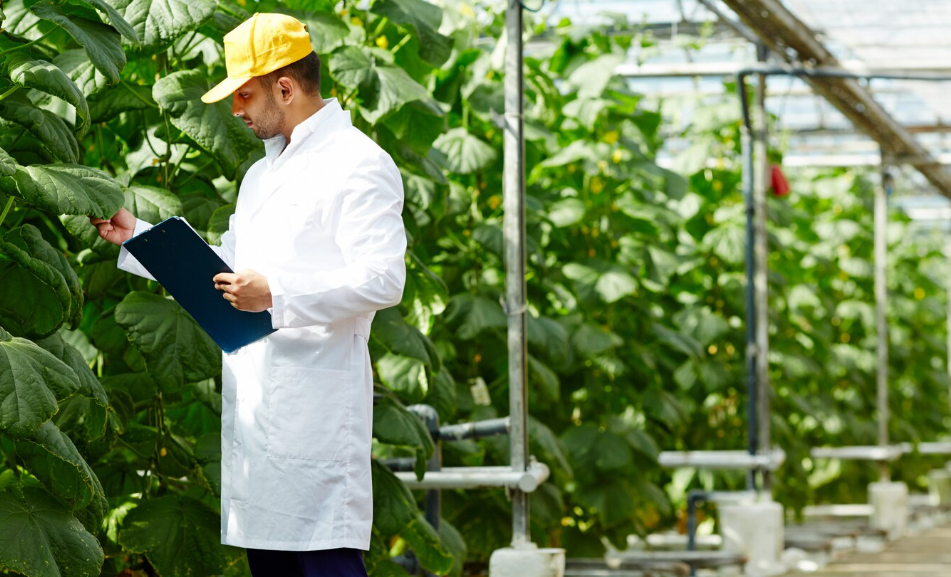A unique opportunity to broaden one’s perspective and comprehend contemporary agricultural techniques is to get a master’s degree in agriculture overseas.
Numerous nations, especially Europe and North America, have cutting-edge research facilities and technological advancements in agriculture, making them attractive locations for agricultural study.
Look at the blog to learn about jobs after Masters in Agriculture abroad.
Table of Contents
Reasons to study Agriculture
Pursuing a Master’s in Agriculture can be a rewarding and meaningful decision for various reasons:
1. Addressing Global Challenges:
Agriculture is crucial in addressing pressing global challenges like food security, sustainable resource management, and climate change adaptation. A Master’s in Agriculture equips you with the knowledge and skills to contribute to solutions for these critical issues.
2. Career Opportunities:
The agricultural sector offers a various career opportunities, from agribusiness and research to policy and development work. With a Master’s degree, you can access higher-paying and leadership roles in these areas.
3. Innovation and Technology:
The field of agriculture is evolving rapidly with advancements in technology, genetics, and sustainable farming practices. A Master’s program can help you stay current with the latest developments and be part of innovation in the industry.
4. Global Relevance:
Agriculture is a globally relevant field, and a Master’s degree in this area can open doors to work and research opportunities not just in your home country but worldwide.
5. Food Security:
With a growing global population, ensuring food security is a paramount concern. A Master’s in Agriculture enables you to contribute to efforts to increase food production and distribution efficiency.
6. Sustainability:
Sustainable agriculture is essential for preserving the environment and ensuring long-term viability. Your education can focus on sustainable farming practices and resource management.
7. Diverse Specializations:
Agriculture is a broad field with various specializations such as crop science, animal science, agribusiness, environmental management, and more. You can tailor your studies to your specific interests and career goals.
8. Contributing to Societal Needs:
As an agriculturist with an advanced degree, you can make a tangible contribution to society by improving agricultural practices, ensuring food safety, and promoting sustainable land use.
Top Companies/Recruiters offering Jobs after Agriculture
Here are some companies & sectors that often hire individuals with a Master’s in Agriculture:
Agricultural Research Institutions:
Government agencies like the U.S. Department of Agriculture (USDA) or research institutions such as the International Rice Research Institute (IRRI) hire agricultural experts for research and development.
Agricultural Chemical and Biotechnology Companies:
Companies like Monsanto (now part of Bayer), Syngenta, and BASF hire plant genetics, biotechnology, and crop protection.
Environmental and Sustainability Organizations:
Organizations working on sustainable agriculture, such as The Nature Conservancy, World Wildlife Fund (WWF), and local conservation authorities, may hire professionals with expertise in sustainable farming practices.
Agtech Startups:
Startups working on agricultural technology and innovation in precision agriculture, data analytics, and smart farming, like Farmers Edge, Climate Corporation (a subsidiary of Bayer), and Blue River Technology (a subsidiary of John Deere), offer opportunities for those interested in technology-driven agriculture.
Agri-Food Trade and Marketing Companies:
Companies engaged in the trade, marketing, and distribution of agricultural products often hire professionals with expertise in agricultural economics and marketing.
Jobs after Masters in Agriculture
1. Agricultural Research Scientist:
Work in research institutions or universities to research crop and livestock management, soil science, biotechnology, and other agricultural areas.
Salaries
- USA: $60,000 – $90,000 per year
- UK: £25,000 – £40,000+ per year
- Europe: €30,000 – €50,000 per year
- Singapore: SGD 50,000 – SGD 70,000 per year
- Australia: AUD 60,000 – AUD 90,000 per year
- Canada: CAD 50,000 – CAD 80,000 per year
2. Crop Consultant:
Provide expert advice to farmers and agricultural businesses on crop selection, cultivation techniques, and pest and disease management.
Salaries
- USA: $60,000 – $90,000 per year
- UK: £50,000 – £80,000+ per year
- Europe: €60,000- €80,000
- Singapore: SGD 60,000 – SGD 110,000 per year
- Australia: AUD 70,000 – AUD 100,000 per year
- Canada: CAD 60,000 – CAD 90,000 per year
3. Agricultural Economist:
Analyze market trends, production costs, and economic factors affecting agriculture to guide pricing, marketing, and resource allocation.
Salaries
- USA: $90,000 – $130,000 per year
- UK: £60,000 – £80,000 per year
- Europe: €70,000- €100,000
- Singapore: SGD 70,000 – SGD 100,000 per year
- Australia: AUD 60,000 – AUD 100,000 per year
- Canada: CAD 60,000 – CAD 120,000+ per year
4. Food Safety Inspector:
Ensure that food products meet safety and quality standards set by regulatory authorities. This role can be in government agencies or private companies.
Salaries
- USA: $60,000 – $80,000 per year
- UK: £30,000 – £60,000 per year
- Europe: €50,000- €80,000
- Singapore: SGD 40,000 – SGD 80,000 per year
- Australia: AUD 70,000 – AUD 100,000 per year
- Canada: CAD 60,000 – CAD 85,000 per year
5. Environmental Consultant:
Address issues related to sustainable agriculture and environmental conservation by advising on land use, conservation practices, and adherence to environmental regulations.
Salaries
- USA: $70,000 – $130,000 per year
- UK: £55,000 – £80,000 per year
- Europe: €60,000- €80,000
- Singapore: SGD 80,000 – SGD 150,000 per year
- Australia: AUD 80,000 – AUD 140,000 per year
- Canada: CAD 70,000 – CAD 100,000 per year
Conclusion
Finally, earning a master’s degree in agriculture offers many attractive job opportunities. Graduates of this advanced education possess the knowledge and abilities required to handle urgent global concerns like food security, environmentally friendly farming methods, and environmental stewardship.
A master’s in agriculture provides a strong foundation for individuals looking to make a significant difference in a crucial industry, with opportunities ranging from agronomy and agribusiness to research, management, and sustainability.
If you are an aspirant looking to study at your dream university, book an appointment with AdmitX today and start your applications early to avail yourself of all the benefits.
Also read- Top 5 exams to study abroad




